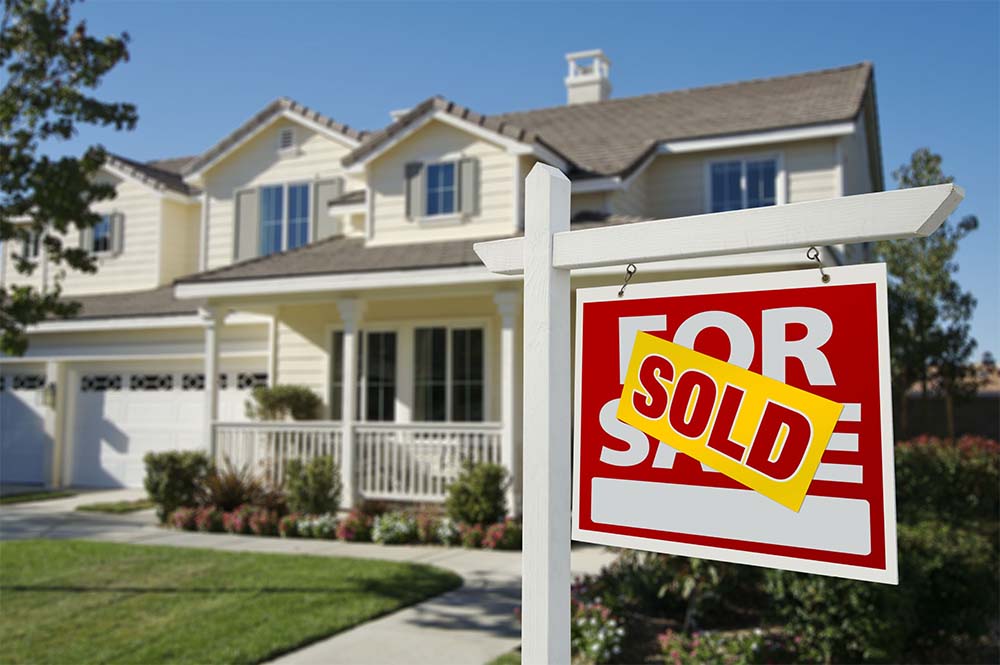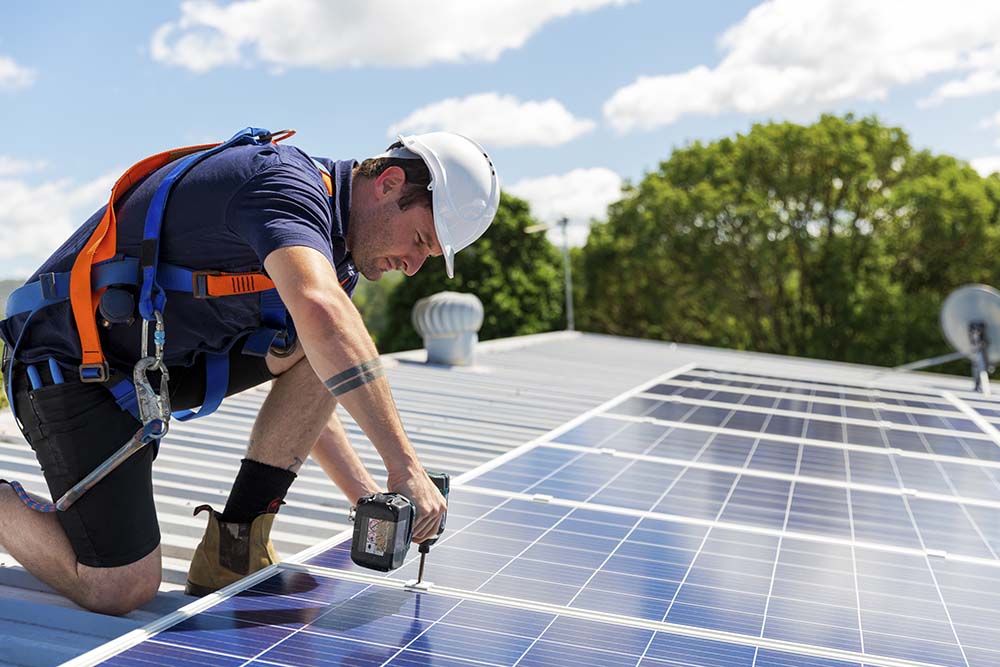If you’re considering installing a solar energy system to your home, this is a valid question. Since you’re going to be investing in a solar energy system, you may wonder if it will add value to your home if you decide to sell it in the future. The short answer is yes, they do add value to your home. There is however, more to it than that. There are some variables to consider, including what state you live in, how much the system costs, and what tax incentives may lower your installation costs.
System Installation Costs
- Solar Panels – The cost of solar panels can be up to 30% of the cost of your solar energy system. One important thing to consider is the “Cost Per Watt” of the solar panels. This is the most important indicator when choosing your panels.
- Inverter – The inverter converts the DC current generated by your solar panels to AC. This is the current that can be used in your home. The inverters will be about 10% of your system installation costs.
- Balance of System (BoS) – This describes the rest of your system, such as the mounting brackets, fasteners, wiring, and so on, but not the solar panels themselves. This will be about 20% of the cost of your system.
- Permits and Inspections (BoS) – While permit and inspection costs will vary by your area, the cost will be about 20% of your total cost. If you live in a place with an HOA, you’ll have to get their approval.
- Installation Cost – The costs of the installation itself will be similar to the permit and inspection costs. This will be about 20% of the total cost of the system.

Types of Panels
There are three types of solar panels: Monocrystalline, Polycrystalline, and the less commonly used Thin Film panel.
- Monocrystalline – Monocrystalline panels are considered a premium product. Their main advantages are higher efficiency and nice aesthetics, i.e.: they look great. They’re made from single crystal silicon, hence the name “monocrystalline” and because of this, the electrons that generate the flow of electricity have more room to move around, so this makes them more efficient.
- Polycrystalline – These panels are somewhat less efficient but are less expensive. They’re made by melting and forming multiple crystals of silicon, hence the name “polycrystalline”. The multiple crystals give the electrons less room to move, so they’re a bit less efficient. Their advantage is a lower price point. They also tend to have a bluish hue, rather than the typical black panels.
- Thin Film – These panels are used on items such as solar shingles and solar tiles.
Types of Solar Systems
- Grid Connected – These are the least expensive systems. They require less expensive equipment and maintenance than an off-grid system. The solar panels provide electricity to your home when the sun is shining, and any excess power is sent back to the grid. The grid provides power when sunshine isn’t available, mainly at night. This pretty much eliminates the need for a storage system, such as batteries, but they might be a good idea in case of a power outage.
- Off-Grid – An off-grid system isn’t connected to the power grid. They’re standalone systems that are good for homes in remote locations, and they’re more cost effective than running a power line to the house, which can cost $15,000-$50,000 per mile. They’re more expensive than a grid connected system because they require extra equipment, such as batteries, a charge controller, safety equipment, power conditioning equipment, meters, and instrumentation.
- System Cost –The cost of your system will vary with its size, the type of system, and your location. Some states have rebates and incentive programs. According to the National Renewable Energy Laboratory, a 2-kilowatt (kW) system, which will offset the energy use of the average home, will cost $16,000-$20,000 before state and federal rebates and incentives.
System Maintenance
Maintenance of your solar energy system is a must to keep it operating at peak efficiency. This mainly consists of having the panels cleaned. A cleaning should be done on an as-needed basis. This may be required if you lease your system, or to maintain your system’s warranty. Check your contract before you sign it to see what the maintenance terms are, if any. Even if it’s not required, it’s a good idea to do it, since it will maintain efficiency and extend the life of your panels.
Tax Incentives
The federal government (EPA) offers tax credits to install solar systems. That means for every dollar you invest in a solar system; a certain percentage will be available as a dollar credit on your federal income taxes. To determine this year’s current tax credit, got to irs.gov and find Form 5695.

How Much Value Do Solar Panels Add to My Home?
How much value solar panels add to your home will vary, especially by location. How much value they add varies from state to state, with some states having higher values than others.
In California, the statewide solar premium is 3% – 4%. One thing you need to keep in mind, is that this premium increase is if you OWN your system. If you lease your system, then you don’t own it and it can’t be included in your home’s valuation. Another issue with a leased system, is that when you decide to sell the house, you have to find a buyer who is willing to take over the lease, which can be a deal breaker, with some buyers.
The state of California, as of 2020, requires all new homes to have roof mounted solar panels. According to the state, this will save homeowners about $19,000 over a 30-year period. Some critics feel, however, the extra cost of requiring solar panels may push the cost of a home out of the reach of some homebuyers. Given the increase in demand for green living, many buyers now feel that energy-efficient home features are highly desirable. Recent natural disasters such as the California wildfires and the unusual heatwaves in Europe, have given inspiration for homebuyers to look for eco-friendly features when buying a home.
While installing a solar energy system will add value to your home, you need to keep in mind the installation costs, the cost of electricity in your area, your location and the suitability of your home for a solar panel installation. Your best chance for making the right choice is to sit down with a Royal Aire advisor and go over all the factors that will go into making your decision. Take your time to go through the information. Then you’ll be confident you’re making the best decision you can.

